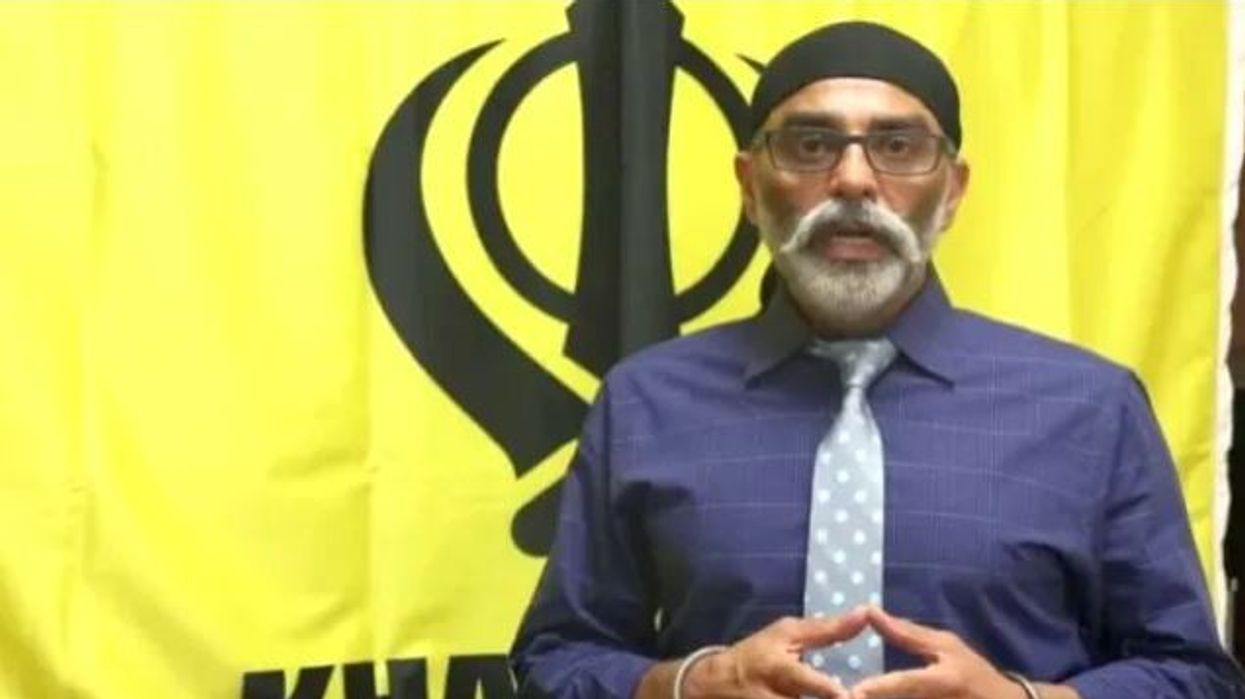INDIA on Tuesday (30) denied a media report which alleged involvement of a spy agency official in the assassination plot of Sikh separatist leader Gurpatwant Singh Pannun in the US, stating it makes 'unwarranted and unsubstantiated imputations on a serious matter'."
The Washington Post newspaper on Monday (29) reported that an official identified as Vikram Yadav was involved in the plot and the move was approved by the then Indian spy agency chief Samant Goel.
Yadav is an official with the Research and Analysis Wing (RAW), the foreign intelligence agency of India.
In response to media queries on the report, Randhir Jaiswal, the official spokesperson of India's ministry of external affairs (MEA), said, “The report in question makes unwarranted and unsubstantiated imputations on a serious matter.
“There is an ongoing investigation of the high-level committee set up by the Government of India to look into the security concerns shared by the US government on networks of organised criminals, terrorists and others. Speculative and irresponsible comments on it are not helpful."
Pannun is one of the main leaders of the Khalistan movement and the legal advisor and spokesperson for Sikhs for Justice (SFJ), which aims to promote the idea of a separate Sikh state. The Indian government has declared Pannun a terrorist.
The newspaper report said, “That India would pursue lethal operations in North America has stunned western security officials. Yadav’s identity and affiliation, which have not previously been reported, provide the most explicit evidence to date that the assassination plan — ultimately thwarted by US authorities — was directed from within the Indian spy service.
“Higher-ranking RAW officials have also been implicated, according to current and former western security officials, as part of a sprawling investigation by the CIA, FBI and other agencies that has mapped potential links to (prime minister Narendra Modi) Modi’s inner circle,” it said.
The report said that it is investigating a global surge in such campaigns of cross-border repression, as well as the global forces leading India and other nations to employ tactics normally associated with the world’s most repressive governments.
For this story, Post reporters conducted dozens of interviews with officials, experts and targeted individuals in New Delhi, Washington, Ottawa, London, Prague and Berlin, it said.
“In reports that have been closely held within the American government, US intelligence agencies have assessed that the operation targeting Pannun was approved by the RAW chief at the time, Samant Goel,” the daily claimed.
“That finding is consistent with accounts provided to The Washington Post by former senior Indian security officials who had knowledge of the operation and said Goel was under extreme pressure to eliminate the alleged threat of Sikh extremists overseas.
“US spy agencies have more tentatively assessed that Modi’s national security adviser, Ajit Doval, was probably aware of RAW’s plans to kill Sikh activists, but officials emphasised that no smoking gun proof has emerged,” it said.
Quoting officials, The Washington Post said, the foiled assassination was part of an escalating campaign of aggression by RAW against the Indian diaspora in Asia, Europe and North America.
The alleged plot to kill Pannun in the US coincided with the June 18 fatal shooting of Khalistani terrorist Hardeep Singh Nijjar in Surrey in Canada’s British Columbia province in June last year. That operation was also linked to Yadav, according to Western officials.
Both plots took place amid a wave of violence in Pakistan, where at least 11 Sikh or Kashmiri separatists living in exile and labelled terrorists by the Modi government have been killed over the past two years, the report said.
Senior Indian government officials named in the report did not respond to it seeking comment, the daily said.
The report added that the Biden administration has refrained from making charges against Yadav.
Responding to the report, the White House press secretary asserted that India is an important strategic partner of the US and “we are pursuing an ambitious agenda to expand our cooperation in several areas”.
Jean-Pierre said, “We’ve been really consistent about that and have laid that out multiple times, whether it’s a meeting here with the prime minister or a meeting abroad.” “This is a serious matter and we’re taking that very very seriously. The Government of India has been very clear with us that they are taking this seriously and will investigate.
“We expect accountability from the government based on that. But we are going to continue to raise our concerns. That’s not going to stop. We’re going to continue to raise our concerns directly, with the Indian government."
The issue is a delicate one for both India and the Biden administration in the US as they try to build closer ties in the face of shared concerns about China's growing power.
News of the US plot came two months after Canada said it was looking at credible allegations potentially linking Indian agents to the June murder of Hardeep Singh Nijjar, another Sikh separatist, in a Vancouver suburb.
India strongly rejected Ottawa's accusations.
(with inputs from PTI)





